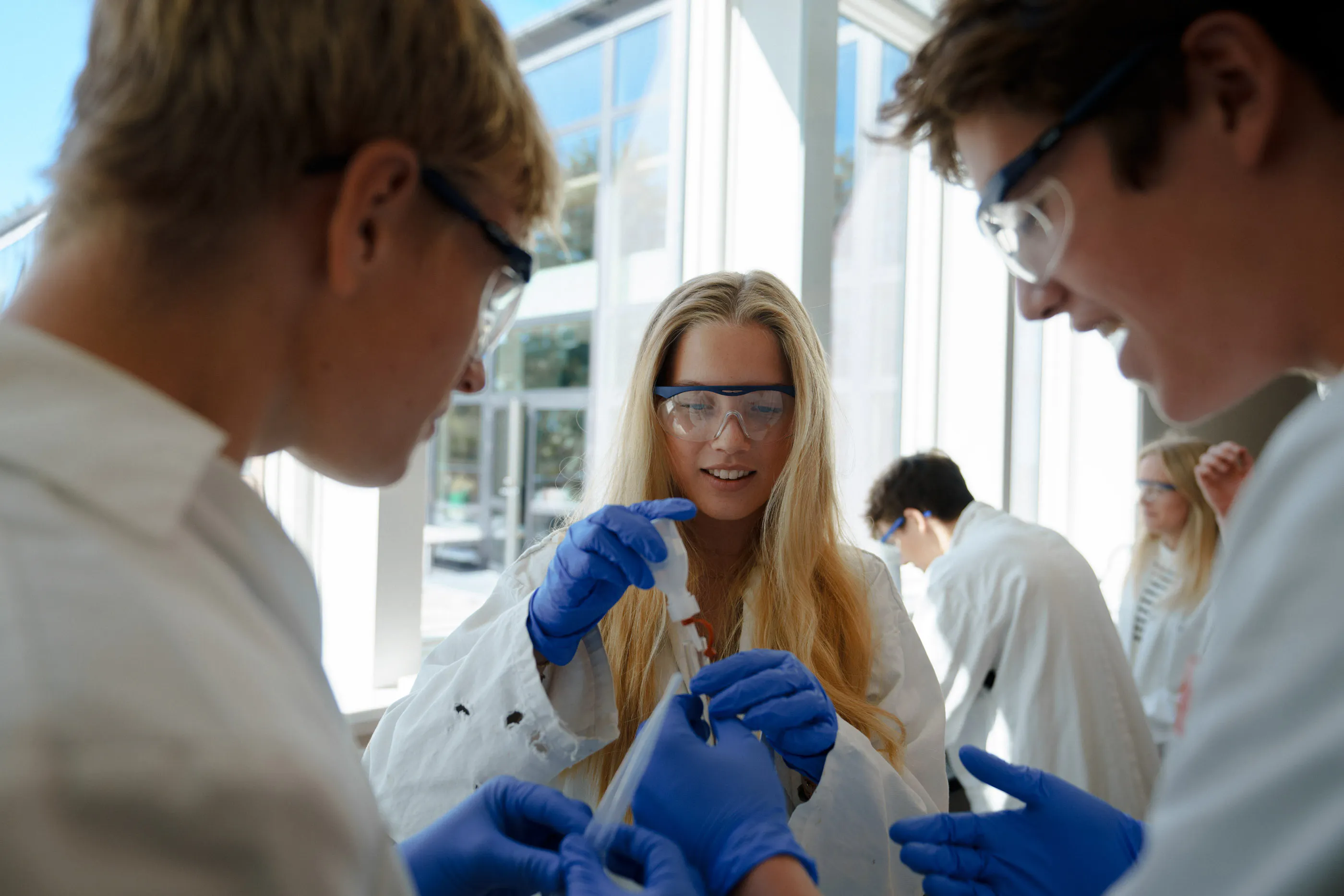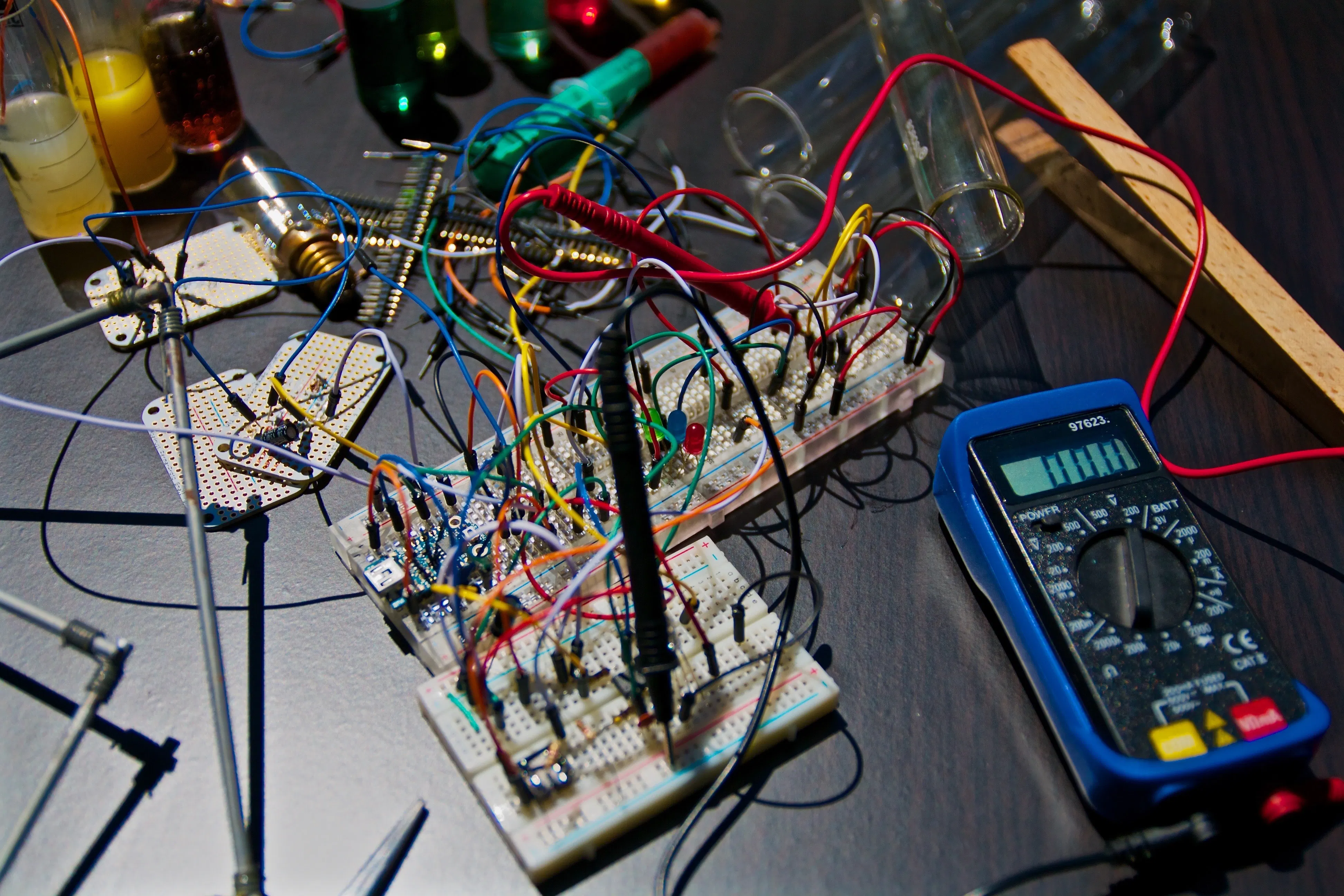
Group 4
The Sciences
All students in the IB Diploma Programme must stud on subject from Group 4 : The Sciences. At BG we offer the following subject in this subject area: Physics, Chemistry, Biology, and Environmental Systems & Societies. All subjects are described below.

Physics
Physics (HL/SL)
Physics is an experimental science, and experiments performed by the students - usually with electronic data logging and sophisticated data processing - play a crucial role throughout the two years. Halfway through the course, each student performs an individual investigation of an experimental problem, the report of which will count with 20% towards the final grade in physics.
The theory is structured into core topics (common to both Higher Level and Standard Level) and additional Higher Level topics. The course offers an all-round and in-depth study of mechanics, thermal physics, electricity, magnetism, oscillations, waves, and also atomic, nuclear, and quantum physics.
For the successful study of Physics in the IB Diploma Programme, fluency in Mathematics is essential. Both of the two Mathematics courses (AA and AI) are suitable for Physics, but preferably at Higher Level.
Physics is a popular subject for the Extended Essay: This gives the student the opportunity to perform more advanced experimental investigations under the supervision of a teacher.
Exam
The written test (3 hours for SL and 4½ hours for HL) has three parts:
Paper 1 and paper 2 both test the core (multiple choice and extended questions, respectively).
Paper 3 consists of questions related to experimental work and data processing, as well as questions in the option studied.
For both levels, the written exam counts 80% of the final mark, while the remaining 20% comes from the internally assessed and externally moderated experimental investigation.

Chemistry
Chemistry HL/SL
Subject update on its way in early January.

Biology
Biology (SL/HL)
Subject update on its way in early January.

Environmental systems and societies
Environmental systems and societies (SL/HL)
ESS is an interdisciplinary course that introduces you to some big environmental issues facing humans and the world that we inhabit. It is firmly grounded in both a scientific exploration of environmental systems in their structure and function and in the exploration of cultural, economic, ethical, political, and social interactions of societies with the environment. Therefore, the course requires you to perform research and investigations and to participate in philosophical discussion.
As a result of studying this course, you will become equipped with the ability to recognize and evaluate the impact of our complex system of societies on the natural world. The systems approach to environmental understanding and problem solving will promote a holistic thinking about environmental issues.
ESS is an interdisciplinary Group 3 and 4 course, but at BG it is offered as a Group 4 course.
Core content
Topic 1— Foundations of environmental systems and societies
Topic 2—Ecosystems and ecology
Topic 3—Biodiversity and conservation
Topic 4—Water and aquatic food production systems and societies
Topic 5—Soil systems and terrestrial food production systems and societies
Topic 6—Atmospheric systems and societies
Topic 7—Climate change and energy production
Topic 8—Human systems and resource use
Practical work
Practical activities in the course includes laboratory exercises, fieldwork, questionnaires, as well as database research.
An individual investigation is a mandatory part of the Internal Assessment and constitutes 25% of the final grade.
Exam
Paper 1 is short answer questions based on a case study booklet (1 hour, 25% of the final grade).
Paper 2 has two parts. Section A is short answer questions covering core material and Section B is two essays from a choice of four (2 hours, 50% of the final grade).